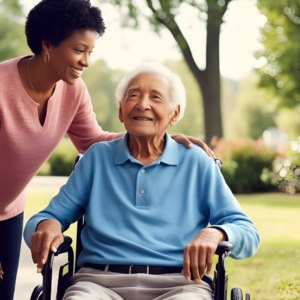Social connections play a vital role in maintaining a healthy and fulfilling life, particularly for older adults. Here are some key reasons why staying socially connected is crucial:
- Emotional Support
- Social connections provide emotional support, which is essential for coping with life’s challenges. Having friends and family to talk to can alleviate stress, anxiety, and depression.
- Physical Health
- Engaging in social activities can lead to better physical health. Socially active seniors are more likely to participate in physical activities, which can improve cardiovascular health, mobility, and overall fitness.
- Cognitive Function
- Social interaction stimulates the brain and can help maintain cognitive function. Engaging in conversations and activities with others can keep the mind sharp and delay cognitive decline.
- Sense of Purpose
- Social connections give older adults a sense of belonging and purpose. Participating in community activities, volunteering, or simply spending time with loved ones can provide a sense of fulfillment and motivation.
- Longevity
- Studies have shown that individuals with strong social networks tend to live longer. Social connections can promote a healthier lifestyle and provide a support system during health crises.
The Impact of Loneliness and Isolation
Loneliness and isolation can have severe consequences on the health and well-being of older adults. Here are some of the potential impacts:
- Mental Health Issues
- Loneliness can lead to depression, anxiety, and increased stress levels. It can also exacerbate existing mental health conditions.
- Decline in Physical Health
- Isolated individuals may be less likely to engage in physical activity, leading to a decline in physical health. Loneliness is also associated with higher risks of chronic conditions such as heart disease, hypertension, and diabetes.
- Cognitive Decline
- Lack of social interaction can accelerate cognitive decline and increase the risk of developing dementia and Alzheimer’s disease.
- Increased Mortality
- Loneliness and social isolation have been linked to a higher risk of premature death. The impact of loneliness on mortality is comparable to the effects of smoking and obesity.
Strategies to Combat Loneliness and Isolation
Fortunately, there are several strategies that older adults can adopt to combat loneliness and isolation. Here are some practical tips:
- Stay Connected with Family and Friends
- Regular communication with family and friends is crucial. Make an effort to call, video chat, or visit loved ones frequently. Encourage family members to involve older relatives in family gatherings and events.
- Join Community Groups and Clubs
- Participating in community groups, clubs, or senior centers can provide opportunities for social interaction. Look for groups that align with personal interests, such as book clubs, gardening groups, or hobby clubs.
- Volunteer
- Volunteering is a great way to stay active and meet new people. Many organizations welcome older volunteers, and it provides a sense of purpose and fulfillment.
- Take Up a New Hobby
- Learning a new skill or hobby can be a great way to meet like-minded individuals. Consider activities such as painting, knitting, dancing, or playing a musical instrument.
- Exercise in Groups
- Participating in group exercise classes, such as yoga, tai chi, or walking groups, can promote physical health and provide social interaction.
- Use Technology to Stay Connected
- Embrace technology to maintain social connections. Social media, messaging apps, and video calls can bridge the gap when in-person meetings are not possible.
- Attend Social Events and Gatherings
- Attend local events, such as community fairs, concerts, and workshops. These events offer opportunities to socialize and engage with others.
- Seek Support from Professionals
- If loneliness and isolation are significantly impacting mental health, consider seeking support from professionals such as therapists or counselors. Support groups for older adults can also provide a sense of community and understanding.
Creating an Inclusive Community for Seniors
Communities play a crucial role in supporting the social well-being of older adults. Here are some ways communities can help combat loneliness and isolation:
- Senior-Friendly Infrastructure
- Ensure public spaces, transportation, and facilities are accessible and senior-friendly. This encourages older adults to participate in community activities.
- Programs and Activities
- Offer programs and activities tailored to the interests and needs of older adults. This can include fitness classes, educational workshops, and social gatherings.
- Promote Intergenerational Interaction
- Encourage intergenerational programs that bring together people of different ages. This fosters mutual understanding and support between generations.
- Awareness Campaigns
- Raise awareness about the importance of social connections and the impact of loneliness. Encourage community members to reach out to older adults and include them in social activities.
- Support Services
- Provide support services such as transportation, meal delivery, and home visits to help older adults stay connected and engaged.
Conclusion
Social connections are essential for the well-being of older adults. Combating loneliness and isolation requires effort from individuals, families, and communities. By fostering strong social networks and creating inclusive environments, we can enhance the quality of life for older adults and ensure they enjoy their golden years to the fullest. Remember, a small gesture of reaching out can make a significant difference in someone’s life. Let’s work together to build a more connected and compassionate society for all.



